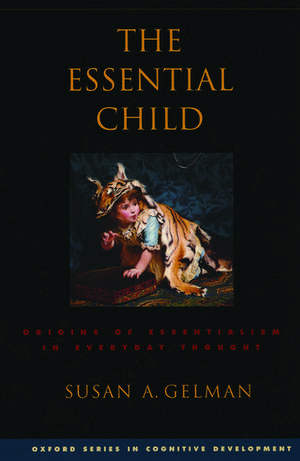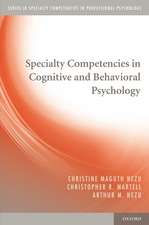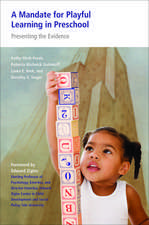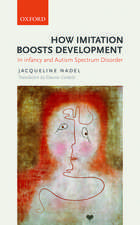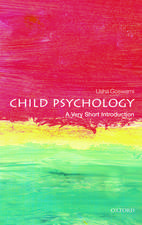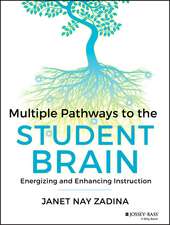The Essential Child: Origins of Essentialism in Everyday Thought: Oxford Series in Cognitive Development
Autor Susan A. Gelmanen Limba Engleză Paperback – 12 mai 2005
| Toate formatele și edițiile | Preț | Express |
|---|---|---|
| Paperback (1) | 305.73 lei 31-38 zile | |
| Oxford University Press – 12 mai 2005 | 305.73 lei 31-38 zile | |
| Hardback (1) | 338.11 lei 31-38 zile | |
| Oxford University Press – 8 mai 2003 | 338.11 lei 31-38 zile |
Preț: 305.73 lei
Nou
Puncte Express: 459
Preț estimativ în valută:
58.50€ • 61.08$ • 48.42£
58.50€ • 61.08$ • 48.42£
Carte tipărită la comandă
Livrare economică 24-31 martie
Preluare comenzi: 021 569.72.76
Specificații
ISBN-13: 9780195181982
ISBN-10: 0195181980
Pagini: 392
Ilustrații: numerous tables, figures, one illustration and 4 halftones
Dimensiuni: 155 x 234 x 26 mm
Greutate: 0.56 kg
Ediția:Revised
Editura: Oxford University Press
Colecția OUP USA
Seria Oxford Series in Cognitive Development
Locul publicării:New York, United States
ISBN-10: 0195181980
Pagini: 392
Ilustrații: numerous tables, figures, one illustration and 4 halftones
Dimensiuni: 155 x 234 x 26 mm
Greutate: 0.56 kg
Ediția:Revised
Editura: Oxford University Press
Colecția OUP USA
Seria Oxford Series in Cognitive Development
Locul publicării:New York, United States
Recenzii
"Susan Gelman's The Essential Child is both deep and accessible. She does the field a great service just by pulling together her truly remarkable research program into one integrated story. In doing so, she shows how the data that support the claim that young children have essentialist commitments challenge deeply held views about the nature of young children's thinking and about the nature of human concepts in general. Anybody concerned with understanding conceptual development and anybody concerned with understanding human concepts should read this book." --Susan E. Carey, Professor of Psychology, Harvard University
"This is a path-breaking book on children's conceptual development with important implications for virtually all of cognitive science." --Douglas Medin, Professor of Psychology, Northwestern University
"This is a path-breaking book on children's conceptual development with important implications for virtually all of cognitive science." --Douglas Medin, Professor of Psychology, Northwestern University
Notă biografică
Susan A. Gelman is the Frederick G. L. Huetwell Professor of Psychology at the University of Michigan. She has authored more than one hundred publications on language and cognitive development and has received numerous honors and awards, including a J.S. Guggenheim Fellowship, a Distinguished Scientific Award from the American Psychological Association for Early Career Contribution to Psychology, and a Boyd McCandless Young Scientist Award from Division 7 of the American Psychological Association. She also serves on the editorial board of several journals. Her research has been funded by the National Institutes of Child Health and Human Development, the National Science Foundation, and the Spencer Foundation.
